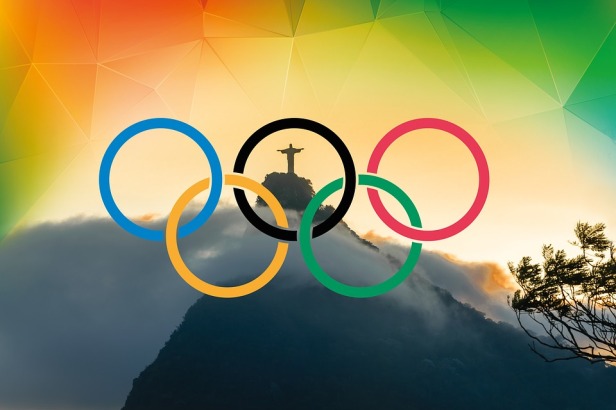
The 2016 Olympic Games will open on August 5th and this time the host city of the competition will be Rio de Janeiro, Brazil. So how about learning some interesting facts and myths about one of the most popular and exciting sporting events around the world?
Picture by PublicDomainPictures. Pixabay License.
OLYMPIA. According to some historical records, the ancient Olympic Games began in 776 B.C in the city of Olympia and they were celebrated in honour of the god Zeus, who was considered the king of the Greek gods. Olympia was a meeting place for religious and political events and the temples of Zeus and Hera were located at the center of the city. The sports competition took place in the same place every four years and the games were open to any freeborn male citizen of Greek origin who wanted to represent his city.
MYTHOLOGY. The most popular myth concerning the beginning of the Olympic Games is related to the story of the struggle between Zeus and Cronus (Zeus’ father) for the throne of the gods. The legend holds that Zeus himself ordered the Greek citizens to organise the games to celebrate his victory over Cronus. After his father’s downfall, Zeus became the king of the Olympian gods. In ancient Greek mythology, Zeus was the sky and thunder god and he was married to Hera, the goddess of women and marriage.

Picture by Stux. Pixabay License.
SPORTS. One of the main differences between the ancient games and the modern Olympics is that the programme of the Greek games did not include any team sports because the aim of the competition was to show the physical skills and qualities of each of the athletes participating in the tournament. That’s why all the sports were practised as individual disciplines. In Olympia, the games took place in two different places: the stadium and the hippodrome, which were located a few meters from the temples of Zeus and Hera. The pentathlon (wrestling, disk throw, javelin throw, long jump and foot race) and the pankration (a primitive form of fighting) were held in the stadium whereas the chariot and horse races took place in the hippodrome.
REWARDS. In the times of the ancient Olympic Games, there was only one winner in each category of the competition and the prize ceremony was organized in the hall of the temple of Zeus. The winner received a crown made of olive leaves and also some red ribbons and palm branches as symbols of his victory. Over the years, the Olympic Games became a very prestigious event and the athlete’s victory was a source of great pride for his city. When the Olympic champion came back to his hometown, he was welcomed as a hero and was given lots of benefits for the rest of his life.

THE END. After the invasion of Greece by the Romans in 146 B.C, the Olympic games began to fall into decline and finally came to an end in 393 A.D when Emperor Theodosius, who had converted to Christianity, issued an edict banning the worship of all pagan gods. For more than 1000 years, the Olympic Games were completely forgotten and the sacred sites of Olympia were struck by floods and earthquakes. However, the discovery of the ruins of the Greek sanctuary in 1766 by the English explorer Richard Chandler, inspired Pierre de Coubertin – French educator and historian – to create the Modern Olympic Games.
Picture by Geralt. Pixabay License.